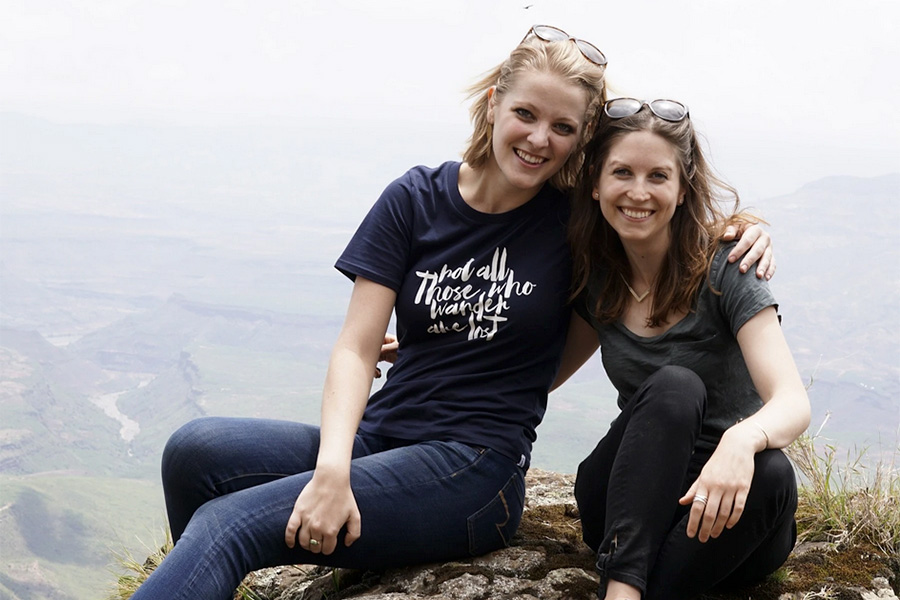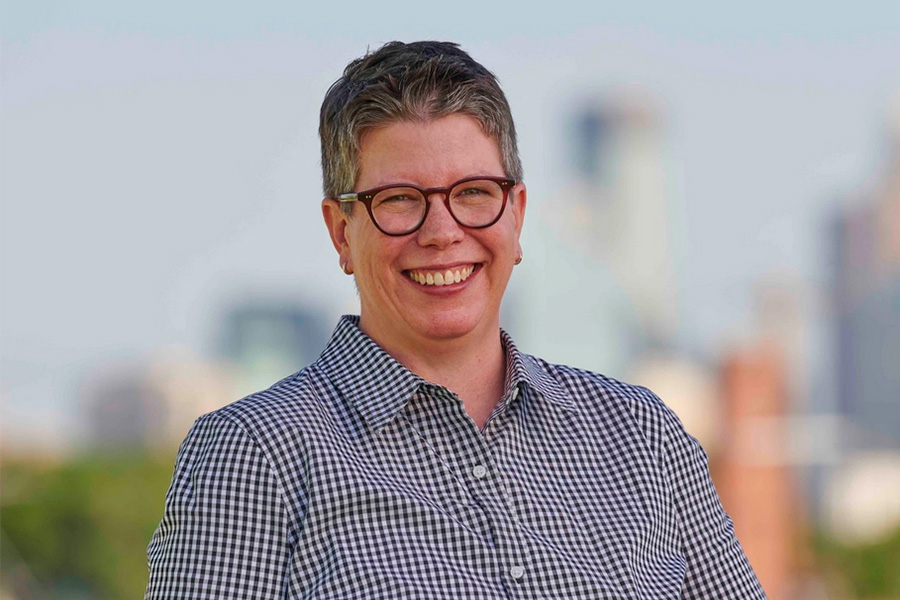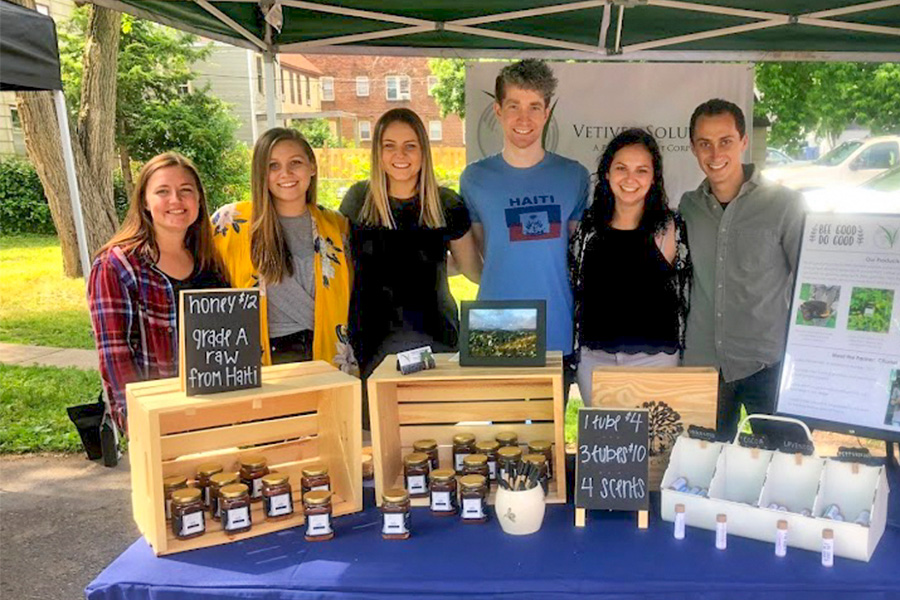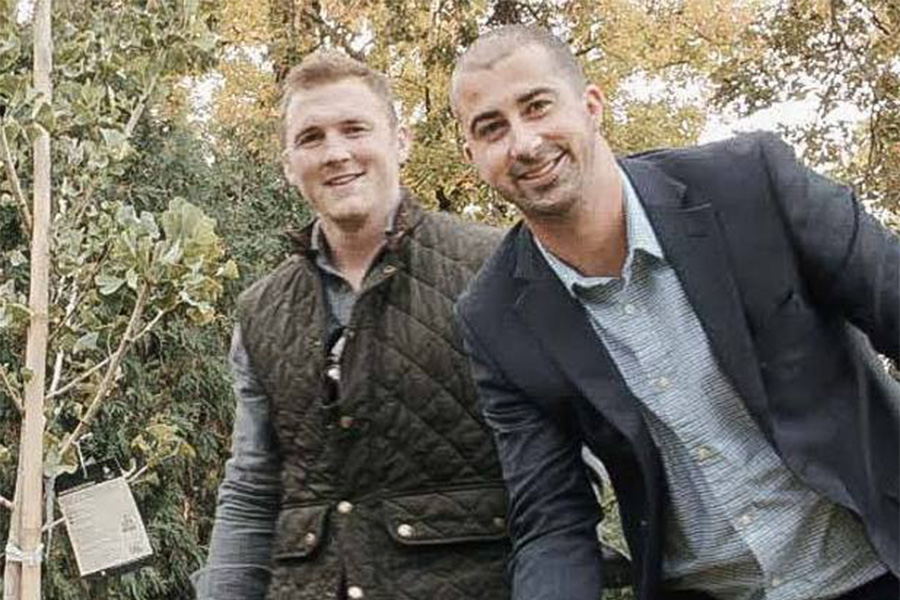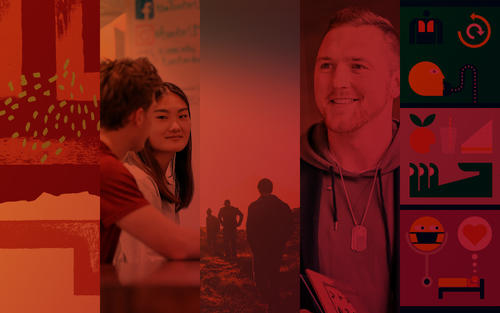
U of M pathways to entrepreneurship
From coursework and research to launching a startup, the U of M supports entrepreneurship at every stage.
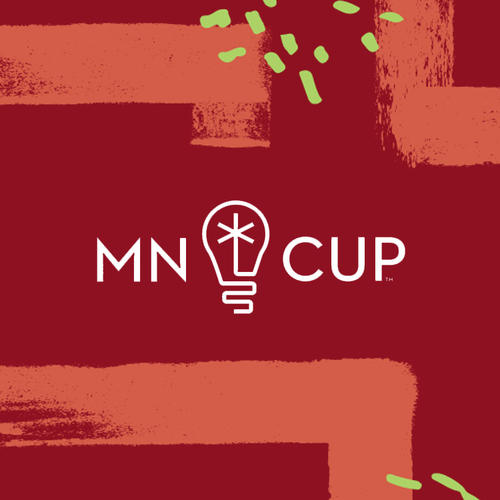
MN Cup: Charting a course for entrepreneurs
The University of Minnesota’s MN Cup is the country’s largest statewide new-venture competition.
Many of the startups featured here, and dozens more that have gone on to become successful businesses, participated in the U of M’s MN Cup competition, a program of the Holmes Center for Entrepreneurship at the Carlson School of Management that supports the development of breakthrough business ideas across Minnesota. It’s the country’s largest statewide new-venture competition, and while it’s open to aspiring businesses around the state, nearly 50 percent of 2021’s semifinalists have U of M students, alumni, or faculty on their founding teams, says John Stavig, director of the Holmes Center.
About the Holmes Center for Entrepreneurship
The Holmes Center for Entrepreneurship offers numerous courses in entrepreneurship for both undergraduate and graduate students. In addition to MN Cup, the Holmes Center provides entrepreneurial programming, mentorship opportunities, clubs, startup internships, and more.
MN Cup participants may be experts in their fields (as in the case of BlueCube Bio’s faculty founder), but lack the business expertise to move an idea or invention into the marketplace. That’s where MN Cup comes in: Throughout the competition, participants receive mentorship, pitch coaching, and exposure to experts in business. And those who advance have a chance at seed funding.
Since 2005, more than 18,000 entrepreneurs have participated in the competition, with many of them receiving a share of more than $4 million in funding. These companies, in turn, have gone on to raise over $500 million. In the 2021 competition, which wraps up in September, teams are competing for another $400,000.
MN Cup is a perfect fit with the University’s land-grant mission, says Stavig. “We mobilize alumni, corporate sponsors, public-sector partners, and the entrepreneurial community in support of emerging entrepreneurs. I’m extremely proud of the work we’ve done to shape the lives of so many entrepreneurs.”
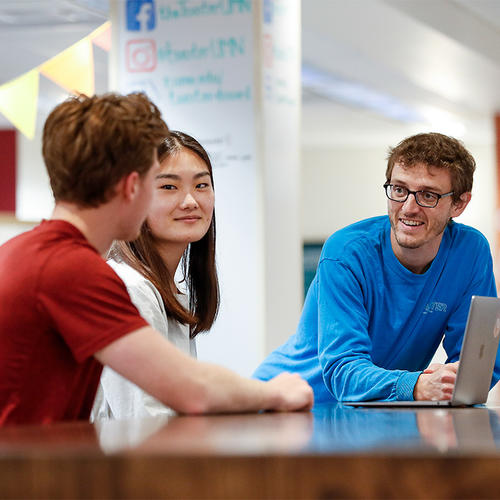
Toaster Innovation Hub: A space for students to turn ideas into action
The Toaster is an imaginative space designed for sparking student creativity and collaboration.
On the edge of the U of M Twin Cities East Bank’s grand green space of Northrop Mall, situated in the basement of Walter Library and can be accessed by the basement entrance, is a nearly 7,000-square-foot space designed entirely for students as an entry point for sparking creativity, innovation, and entrepreneurship. Beyond being a space for learning and collaboration, featuring mentorship opportunities, lectures, and workshops led by faculty and students, the Toaster Innovation Hub (named for the pop-up toaster, which was invented in Minnesota in 1919) has nearly everything a student could want to move an idea into reality.
“It’s not your typical quiet library space,” says Erik Halaas (pictured below left, with John Stavig), Toaster Innovation Hub innovation outreach and program specialist.
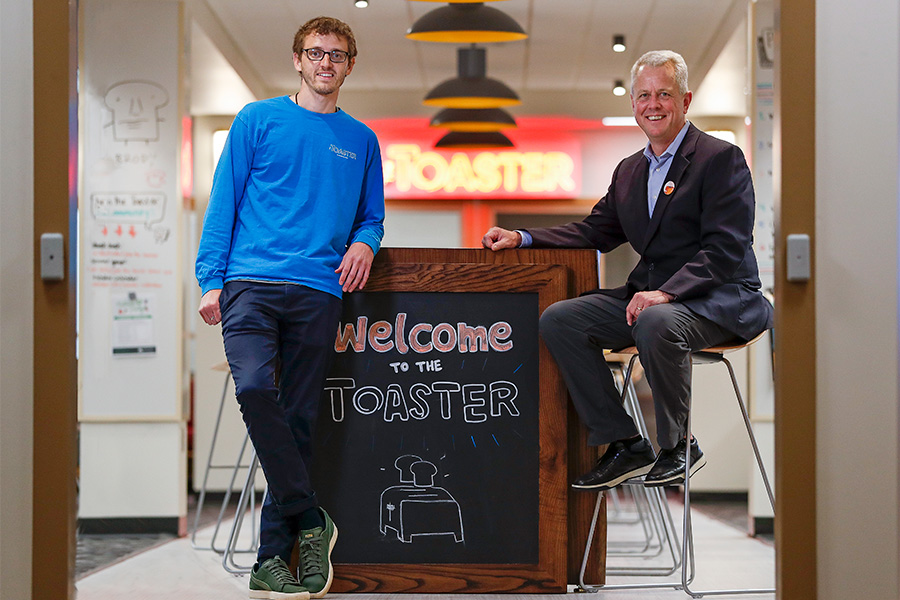
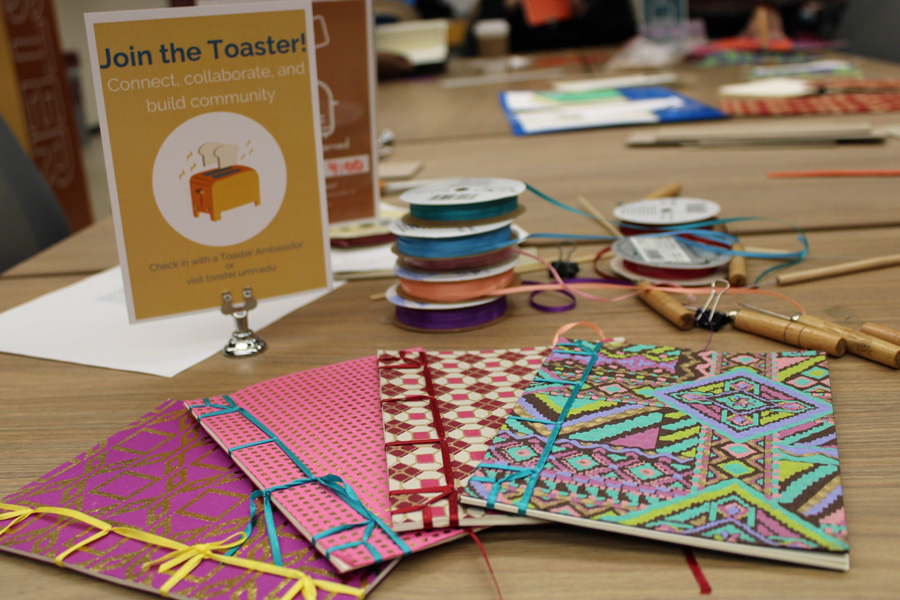
A partnership between the Carlson School’s Holmes Center for Entrepreneurship and U of M Twin Cities Libraries, the Toaster Innovation Hub, which opened in early 2020, was designed as a dynamic space that supports collaboration both big and small, says Halaas. Students from a dozen entrepreneurship-themed courses around the University are likely to use the space when it reopens this fall after mostly virtual use during the pandemic.
The space includes the Breakerspace—a DIY makerspace where students can get hands-on tinkering experience.
“It's really an entry point in a lot of respects,” says Halaas. “You can explore with materials like 3D printers, sewing machines, stencil makers, VR headsets, video and graphic design software and hardware… as it relates to innovation, you can build your prototype.”
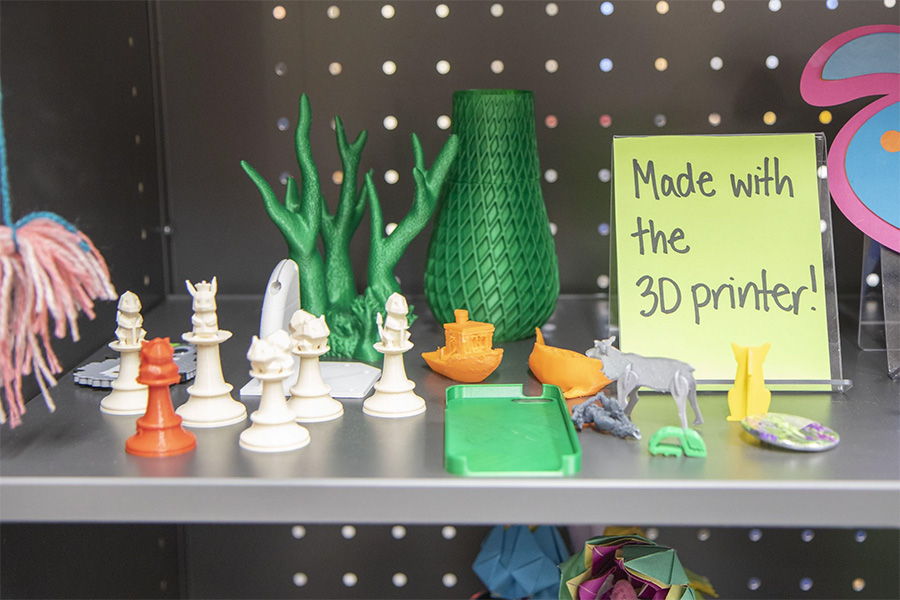
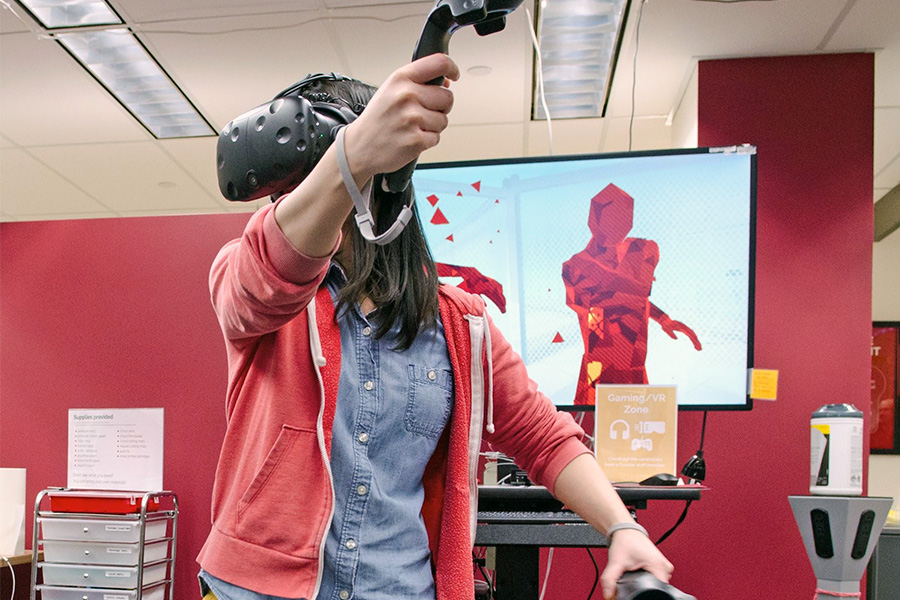
Students who participate in the U of M’s Acara Program and/or MN Cup are frequent visitors to the space, says Halaas, though the space is open to students from all colleges and majors.
“When a student comes and says, ‘I want to build something,’ or ‘I want to launch a business,’ or ‘I want to address a social impact issue,’ we can connect the dots for them,” he says.
Whether they are connecting with faculty, collaborating with other students, or learning from industry experts, the space serves as a vital connecting point for a community of innovators.
“We want this to be a place where students come to have rich conversations and connect and hear new things and be introduced to new content,” says Halaas. “We're a conduit and a platform for students to get their ideas out.”

Acara: Creating environmental and social change
The Acara program draws students interested in entrepreneurship and environmental and social change.
The Acara program of the University of Minnesota’s Institute on the Environment is a leadership development community for students interested in solving real-world environmental and social challenges—often with an international focus. In the past, students have tackled issues ranging from equitable access to clean water and health care to developing clean-energy solutions and creating easier access to healthy foods.
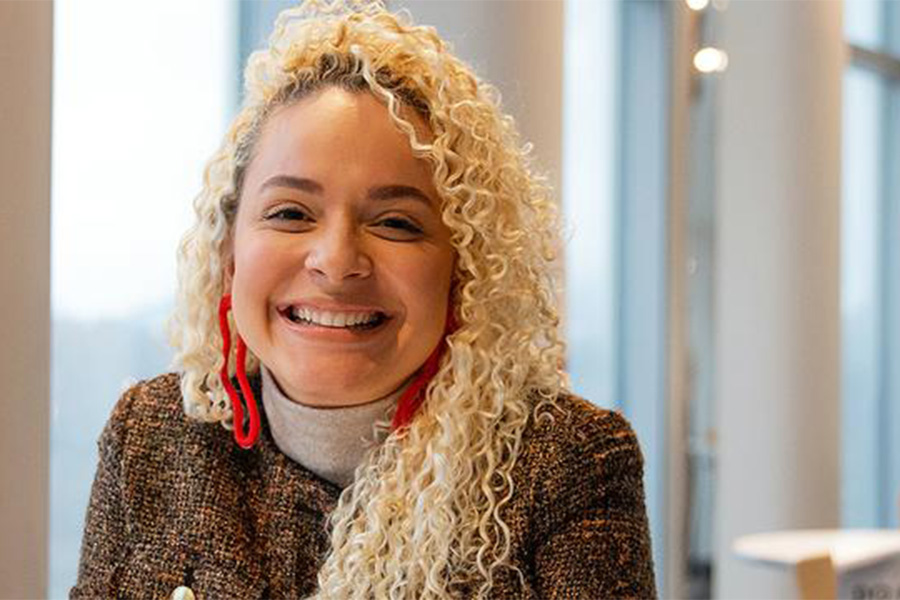
Acara supports students through courses for undergraduate and graduate students, a Graduate Changemakers Lab, coaching from faculty and community leaders, and funding programs like the annual Acara Challenge competition.
Acara Challenge finalists receive mentorship as well as support in refining their goals and creating a viable launch program. Oftentimes, Acara students go on to participate in other U of M programming, such as the MN Cup competition, where they can receive additional mentorship and funding support leading to the next level—launching social or environmentally focused entrepreneurship startups.
One example that started as an Acara project is Pure Paani, which provides affordable, lightweight, hand-operated water filtration devices to people without access to clean water in Bangalore, India. Or EcoCiclo, founded by Karla Godoy Da Costa Lima (MDP ’22)—the top graduate-level winner of the 2021 Acara Challenge—to produce biodegradable sanitary pads in Brazil.
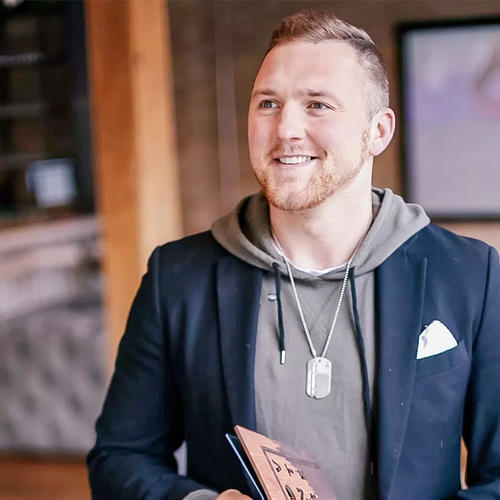
Alumni Market: A sales platform for entrepreneurial alumni
The MN Alumni Market is one of the only such markets among universities in the nation.
One of the only alumni markets among universities in the nation, the University of Minnesota Alumni Association’s MN Alumni Market originated from a desire to help alumni businesses gain exposure to a U of M community of more than 500,000 living alumni. The market brings together more than 65 alumni businesses and their products within one shopping environment. Those businesses range from Fair Anita and Peace Coffee to Vetiver Solutions and Woodchuck USA.
During the pandemic, some of these alumni businesses, such as Woodchuck USA, shifted their focus to help out in a time of crisis. And the Alumni Market itself began selling face masks produced by Synergy Imports—donating one mask for every one sold to medical patients and their family caregivers as well as U of M students in on-campus housing. To date they’ve donated nearly 30,000 face masks, which in turn produced an 800+ percent increase in sales for alumni businesses.
“There is something so powerful there, especially during a terrible year for small businesses,” says Lisa Huber, senior director of marketing and partnerships for the Alumni Association. “Despite it all, the market found ways to uplift entrepreneurs of all sizes in an effort to drive support to our alumni.”
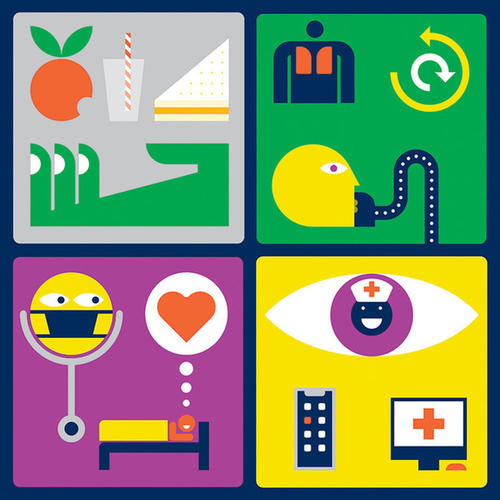
Technology commercialization and COVID-19 innovations
When COVID-19 hit, the U of M Twin Cities technology commercialization team quickly shifted to moving COVID-19 innovations into the marketplace.
The University of Minnesota has launched more than 170 startups based on U of M research through its Office of Technology Commercialization’s Venture Center, formed in 2006. Since then, the Venture Center has helped U of M startups raise more than $405 million in investment capital. Eight of those startups have been acquired or have gone public since 2017.
Launched 170+ startups based on U of M research
75% are based in Minnesota
78% are still active—well above the national average
Raised more than $400M in investment capital
During the pandemic, the technology commercialization team quickly shifted to moving COVID-19 innovations into the marketplace, connecting potential industry partners with researchers to help in the fight against COVID-19.
One notable example is the Coventor Emergency Ventilator. When the United States was running low on ventilators in the early stages of the pandemic, Steven Richardson, a cardiac anesthesia fellow at the University of Minnesota Twin Cities, created a low-cost device used to ventilate COVID-19 patients suffering breathing problems. Richardson then called his lifelong friend Jim McGurran (’17 MBA), a product development director at a Minnesota–based medical technology company, which quickly created prototypes. The device was approved by the FDA and made available at no cost with an open-source design.
And alumni Julia Duvall (BS ’15, MS ’17), a graduate of the U of M’s College of Design, helped design a face mask that was named by Time Magazine as one of the best inventions of 2020.
